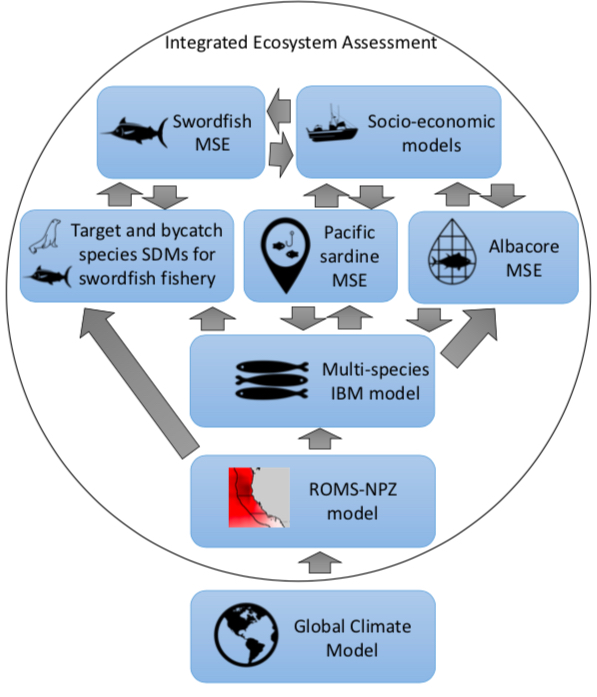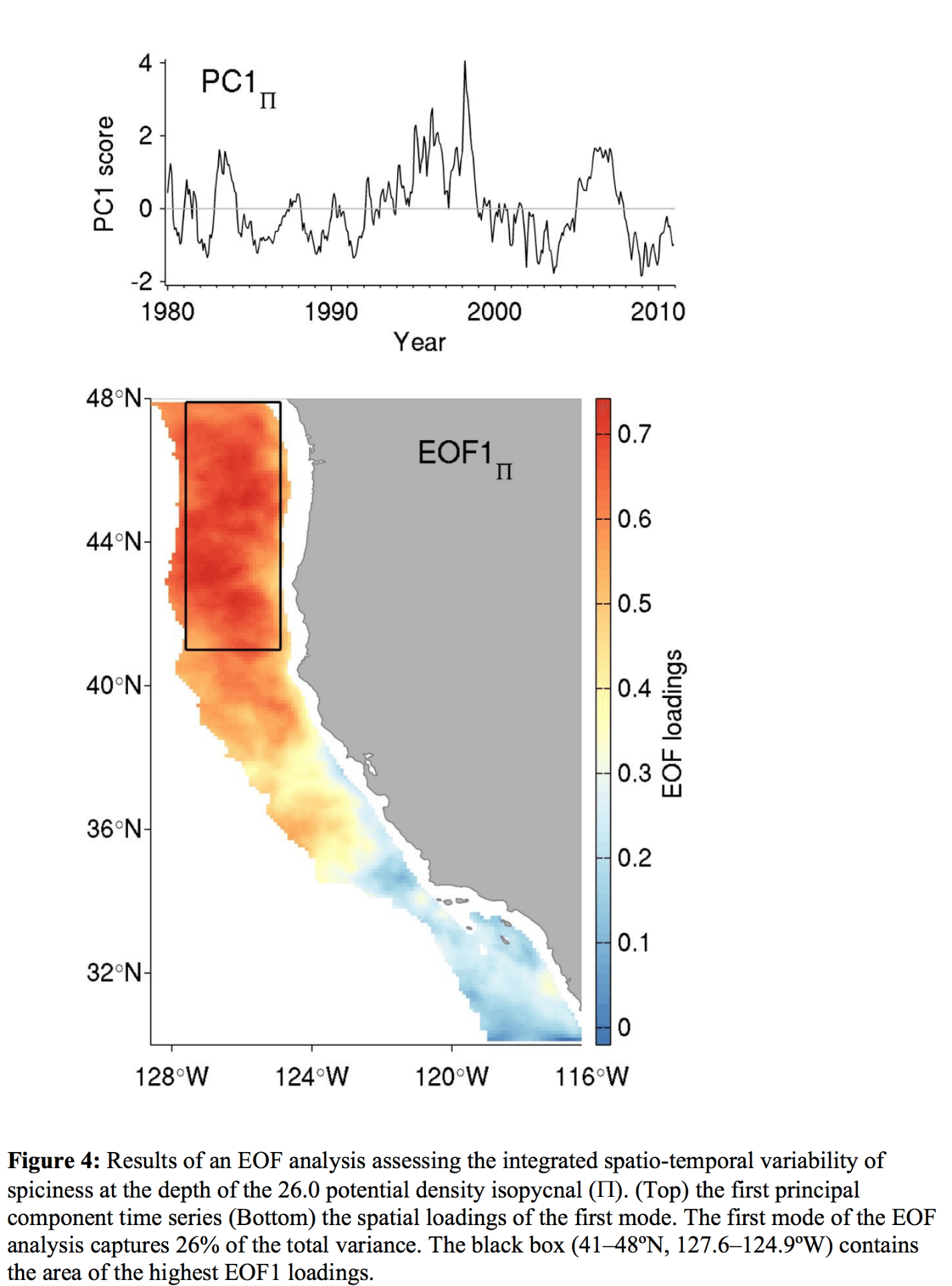With the Bakun upwelling index almost 30 years old, a new publication by Mike Jacox explores two new indices derived from modeled vertical velocity: CUTI (coastal upwelling and transport index) and BEUTI (biologically effective upwelling and transport index). Mike has also provided a history of the upwelling indices focusing on where the indices agree and diverge. The publication is available in early view at JGR. Continue reading
Category Archives: Research Project
New publication in CJFAS by Isaac Schroeder on “Source water variability as a driver of rockfish recruitment in the California Current Ecosystem”
Elucidating connections between ocean climate variability and change, and recruitment of juvenile fishes to adult populations, is critical for understanding variability in stock-recruit dynamics. Recruitment to adult rockfish populations in the California Current Ecosystem (CCE) is highly variable, leading to short and long-term changes in abundance, productivity, forage availability and potential fisheries yield. We used regional ocean model output, oceanographic data, and a 34-year time series of pelagic juvenile rockfish, to investigate the interaction between changes in CCE source waters as reflected by physical water mass properties and recruitment variability. Specifically, variability of spiciness on upper water isopycnals explains a substantial fraction of the variation in pelagic juvenile rockfish abundance. High rockfish abundances correspond to cooler, fresher waters with higher dissolved oxygen (i.e., minty) conditions, indicative of Pacific Subarctic Water. By contrast, years of low rockfish abundance are associated with warmer, more saline, and more oxygen deficient (i.e., spicy) conditions, reflecting waters of subtropical or equatorial origin. Transport and source waters in the CCE are key factors determining density-independent processes and subsequent recruitment to adult populations.
Project website goes live for the Future Seas project!
Future Seas is a project exploring potential impacts of climate change on the swordfish, albacore, and Pacific sardine fisheries in the California Current System. A suite of dynamical, statistical, and conceptual models is being applied to explore future scenarios in an “end-to-end” framework spanning physical changes to socio-economic consequences, and to evaluate uncertainty associated with individual elements of the modeling framework.


